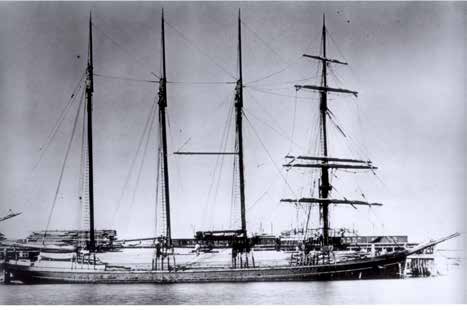“Fugitive Slave / Fugitive Sailor”: Sailors’ Wardship and the Rhetoric of Emancipation in United States Maritime Reform, 1895-1898
DOI :
https://doi.org/10.25071/2561-5467.1248Mots-clés :
citizenship, free labor, merchant seamen, Progressive Era, Sailor's Union of the Pacific, US ConstitutionRésumé
En 1897, la Cour suprême des États-Unis a statué contre quatre marins marchands qui protestaient contre leur arrestation pour désertion de la barque Arago à Astoria, en Oregon, définissant ainsi de façon tardive la clause du treizième amendement qui abolissait l’asservissement involontaire. Cette décision de la Cour suprême contre les marins de l’Arago a été le point culminant de la transformation des conceptions du travail libre de l’époque de la reconstruction en un système de plus en plus draconien qui insistait sur la liberté contractuelle absolue jusqu’à l’auto-asservissement. Les diverses conceptions du paternalisme et de la tutelle des marins ont motivé la cooptation du discours d’émancipation par les réformateurs maritimes visant à affirmer les droits des
marins à la pleine protection du treizième amendement et, par conséquent, à la citoyenneté américaine.
Références
Alborn, Denise. “Shanghai Days in Astoria.” Cumtux: Clatsop County Historical Society Quarterly 9, no. 1 (Winter 1988): 9-15. https://archive.org/details/cumtux.19880901
Fingard, Judith. Jack In Port: Sailortowns of Eastern Canada. Toronto: University of Toronto Press, 1982.
Leon Fink, “From Autonomy to Abundance: Changing Beliefs about the Free Labor System in Nineteenth- Century America,” in Stanley L. Engerman, ed., Terms of Labor: Slavery, Serfdom, and Free Labor. Palo Alto, CA: Stanford University Press, 1999.
Foner, Eric. Reconstruction: America’s Unfinished Revolution, 1863-1877. New York: Harper Perennial Classics, 1988.
Gilje, Paul. Free Trade and Sailors’ Rights in the War of 1812. New York: Cambridge University Press, 2013.
Jung, Moon-Ho. Coolies and Cane: Race, Labor, and Sugar in the Age of Emancipation. Baltimore: Johns Hopkins University Press, 2006.
McDaniel, W. Caleb “The Bonds and Boundaries of Abolitionism.” Journal of the Civil War Era 4, no. 1 (March 2014): 84-105. https://doi-org/10.1353/cwe.2014.0021
Norris, Martin J. “The Seaman as Ward of the Admiralty.” Michigan Law Review, 52, no. 4 (February 1954): 479-504. https://repository.law.umich.edu/mlr/vol52/iss4/2
Rafferty, Matthew Taylor. The Republic Afloat: Law, Honor, and Citizenship in Maritime America. Chicago: University of Chicago Press, 2013.
Rediker, Marcus. Between the Devil and the Deep Blue Sea: Merchant Seamen, Pirates and the Anglo-American Maritime World, 1700-1750. New York: Cambridge University Press, 1987.
Rediker, Marcus and Peter Linebaugh. The Many-Headed Hydra: Sailors, Slaves, Commoners, and the Hidden History of the Revolutionary Atlantic. Boston: Beacon Press, 2000.
Richardson, Heather Cox. The Death of Reconstruction: Race, Labor, and Politics in the Post-Civil War North, 1865-1901. Cambridge: Harvard University Press, 2001.
Salman, Michael. The Embarrassment of Slavery: Controversies over Bondage and Nationalism in the American Colonial Philippines. Berkeley: University of California Press, 2001.
Soifer, Aviam. “The Paradox of Paternalism and Laissez-Faire Constitutionalism: United States Supreme Court, 1888-1921.” Law and History Review 5, no. 1 (Spring 1987): 249-279. https://doi:10.2307/743942
Stanley, Amy Dru. From Bondage to Contract: Wage Labor, Marriage, and the Market in the Age of Slave Emancipation. New York: Cambridge University Press, 2006.
Steinfeld, Robert J. Coercion, Contract, and Free Labor in the Nineteenth Century. New York: Cambridge University Press, 2001.

Téléchargements
Publié-e
Comment citer
Numéro
Rubrique
Licence

Cette œuvre est sous licence Creative Commons Attribution - Pas d'Utilisation Commerciale 4.0 International.
